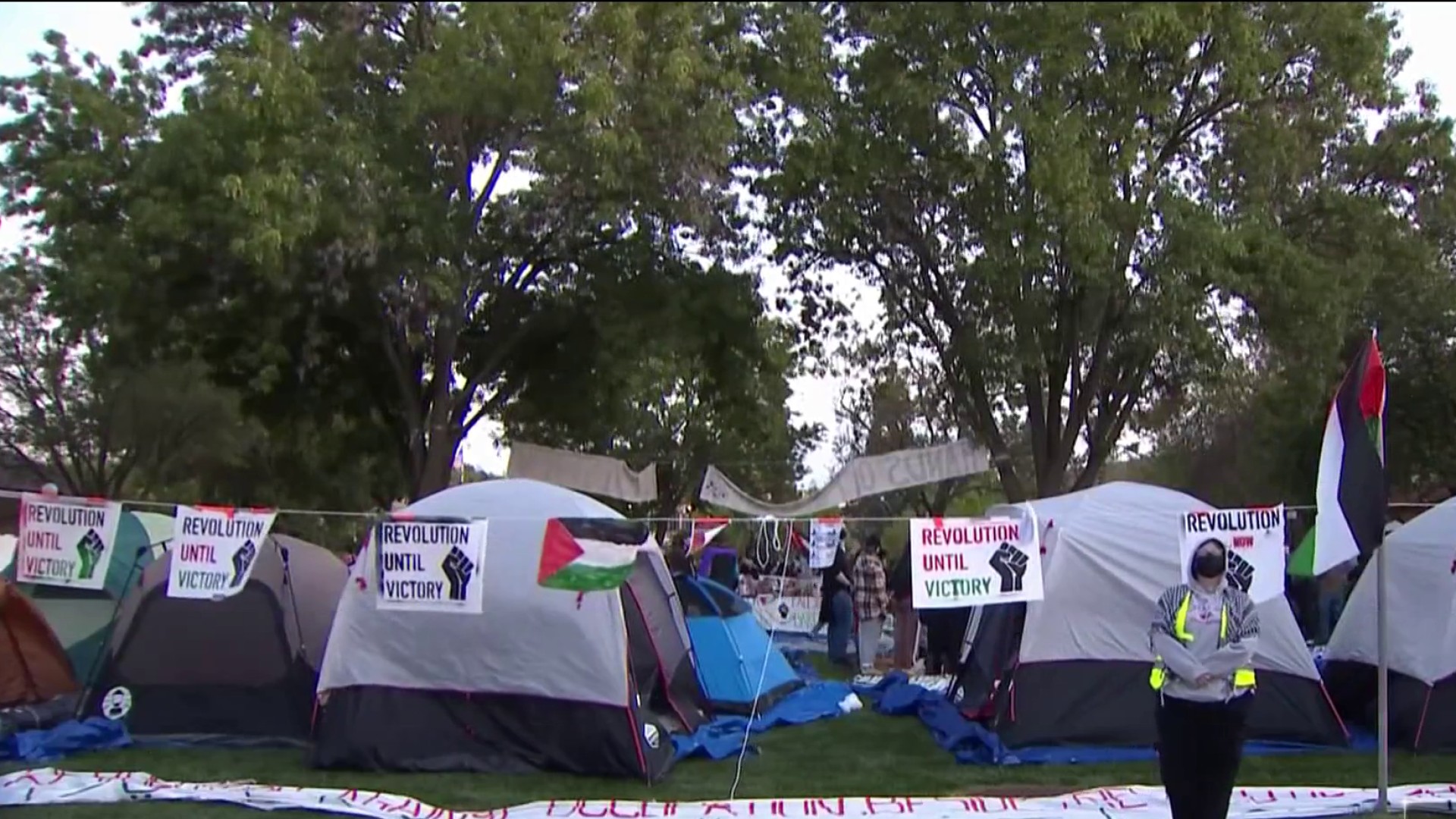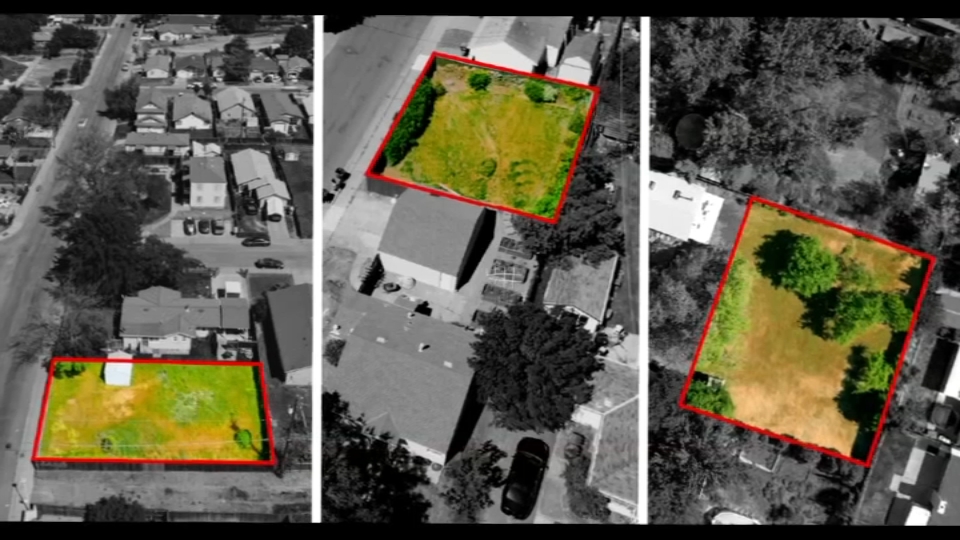In the most highly anticipated ruling of the session, the U.S. Supreme Court handed down a victory to California same-sex rights advocates Wednesday clearing the way for same-sex marriages to resume in California.
The justices refused to take up a challenge to California's voter-approved Prop 8 -- a ban on same-sex marriage that landed before the justices after years of legal battles.
In a 5-4 ruling, the Court decided Prop 8 backers lacked standing under federal law to appeal the case, effectively leaving an earlier ruling that Prop 8 is unconstitutional in place.
Chief Justice John Roberts wrote the majority opinion, and was joined by Justices Ruth Bader Ginsburg, Stephen Breyer, Elena Kagan and Antonin Scalia.
MORE: Read Excerpts From Prop 8 Ruling
"We have no authority to decide this case on the merits, and neither did the 9th Circuit,'' Roberts said, referring to the federal appeals court that struck down Proposition 8, then issued a stay on its order to allow for the appeals process tha led to Wednesday's decision.
Gov. Jerry Brown and state Attorney General Kamala Harris, who were the original defendants in the couples' lawsuit, had refused to appeal, and the high court said the initiative's sponsors, as a private group, didn't have the right to step in.
The group that fought for Prop 8 said it was saddened and disappointed with the ruling.
"The Supreme Court has done vast damage to man-woman marriage, the foundation of the natural family," said Randy Thomasson, president of SaveCalifornia.com.
Local
Full Coverage: Photo Gallery | Read: Supreme Court's Prop 8 Opinion | Storify: Social Media Reaction
Gov. Brown quickly advised county officials that the district court’s injunction against Proposition 8 applies statewide and that all county clerks and county registrar/recorders must comply with it.
“After years of struggle, the U.S. Supreme Court today has made same-sex marriage a reality in California,” said Brown.
Brown said same-sex couples won't be able to marry until the Ninth Circuit Court of Appeals confirms the stay of the injunction.
Attorney General Kamala Harris called on the Ninth Circuit to lift that stay immediately. "Gay and lesbian couples in California have waited long enough for their full civil rights,” Harris said.
She said if the court lifts the stay, marriages could resume that very day and would not have to wait the 25 days. "As soon as they lift that stay marriages are on. The wedding bells will ring," Harris said.
Harris' plea was not enough to convince the court to issue any stay.
In fact the Ninth Circuit issued a statement saying it would not lift the stay "for at least 25 days."
Docket Text:
Received copy of Supreme Court opinion dated 06/26/2013. The judgment or mandate of this Court will not issue for at least twenty-five days pursuant to Rule 45. Should a petition for rehearing be filed timely, the judgment or mandate will be further stayed pending this Court's action on the petition for rehearing. Supreme Court No: 12-144. [8682306] [10-16696, 11-16577] (RR)
The San Francisco-based court said it may continue to bar gay marriages even beyond 25 days if proponents of Proposition 8, the state's gay marriage ban, ask for a rehearing.
The timing of the resumption of same-sex marriages aside, the ruling was cheered throughout San Francisco.
San Francisco Mayor Ed Lee called it "historic."
The Supreme Court's DOMA decision came down at 7 a.m.
MORE: Supreme Court strikes down the federal Defense of Marriage Act
The Prop 8 decision came down at 7:30 a.m. There was a delay following the DOMA ruling as Justice Antonin Scalia read his opinion in DOMA.
The Prop 8 case and the federal Defense of Marriage Act drew a crowd that camped out early Wednesday in front of the Supreme Court building. There were also hundreds of people that packed into the Rotunda of San Francisco City Hall. The group cheered both the ruling on DOMA and Prop 8.
Rep. Nancy Pelosi, who represents San Francisco, also applauded the rulings.
The long-awaited decision day comes after Justices considered arguments from attorneys representing Prop 8 supporters and opponents at a March hearing. The Supreme Court granted in December the review of Prop 8 -- approved by California voters in November 2008 -- and the Federal Defense of Marriage Act, also argued before the court in March.
Attorneys' arguments focused on a 2010 ruling by a San Francisco-based appeals court that struck down the ban, approved by California voters in the 2008 election. The San Francisco court ruled the state could not take away the same-sex marriage right granted by the state Supreme Court in a ruling that came before the 2008 election.
The debate stretches back years through court cases and elections, including the March 2000 approval of Prop 22, which defined marriage in California as between a man and a woman.
That law was ruled unconstitutional by the state Supreme Court in May 2008. An estimated 18,000 same-sex couples were married during a brief window before Prop 8's approval in the November election that year.
California's same-sex marriage ban was left in effect during the lengthy appeals process that followed. The legal battle included a landmark 2010 same-sex marriage trial in which Chief U.S. District Judge Vaughn Walker ruled the ban unconstitutional. Walker said the law "both unconstitutionally burdens the exercise of the fundamental right to marry and creates an irrational classification on the basis of sexual orientation."
After appeals by Prop 8 supporters who said voters should not be invalidated "based on just one judge's opinion," a San Francisco court ruled in a 2-1 decision in November 2012 that Walker's ruling properly interpreted the U.S. Constitution. The court ruled that the ban's "only effect was to take away that important and legally significant designation."
As attorneys argued over the issue in court, public attitudes toward same-sex marriage shifted. In 2001, 57 percent of Americans opposed same-sex marriage, according to the Pew Forum on Religion and Public Life. In a poll conducted in March 2013, 49 percent of Americans said they support same-sex marriage.
In a June 2013 USC Dornsife/Los Angeles Times poll, 58 percent of respondents said they believe same-sex marriage should be legal. When the same question was asked in that poll three years earlier, 52 percent favored same-sex marriage.
The latest USC Dornsife/LA times poll also revealed that voters 65 years of age and older are now almost evenly divided on the issue -- 46 percent in favor, 47 percent opposed. Three years ago, the same age group opposed same-sex marriage by a margin of 19 percentage points.
A second case before the high court challenges the Defense of Marriage Act -- also known as DOMA. The act blocks federal recognition of same-sex couples in states where they are allowed to marry.
Nine states -- Connecticut, Iowa, Maine, Maryland, New Hampshire, New York, Massachusetts, Vermont and Washington -- and Washington D.C. allow same-sex marriages. Minnesota's same-sex marriage legislation, already signed into law by its governor, will go into effect in August.



